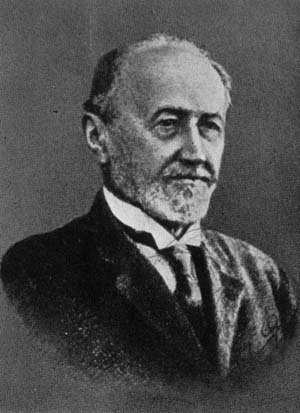Juan Vucetich facts for kids
Quick facts for kids
Juan Vucetich
|
|
|---|---|
 |
|
| Born | July 20, 1858 Hvar, Kingdom of Dalmatia, Austrian Empire
|
| Died | January 25, 1925 (aged 66) Dolores, Argentina
|
| Resting place | La Plata Cemetery |
| Police career | |
| Department | Policía de Buenos Aires |
| Rank | Officer |
Juan Vucetich Kovacevich (born Ivan Vučetić July 20, 1858 – January 25, 1925) was a Croatian-Argentine scientist and police official. He was a pioneer in using fingerprinting to identify people. His work changed how police investigated crimes around the world.
Contents
Who Was Juan Vucetich?
Juan Vucetich was a brilliant thinker who helped create a new way to solve crimes. He was born in Croatia but moved to Argentina. There, he became a police officer. He is famous for developing the first system to use fingerprints for identifying criminals.
Early Life and Moving to Argentina
Juan Vucetich was born as Ivan Vučetić on July 20, 1858. His hometown was Hvar, which is a city in what is now Croatia. When he was 23 years old, he decided to move to Argentina. This was in the year 1881. After arriving in Argentina, he changed his name to Juan Vucetich.
His Big Idea: Fingerprints
In 1888, Juan Vucetich started working for the police in La Plata, Argentina. He worked in the statistics office. This is where he began to study fingerprints. He learned about the unique patterns on people's fingertips. He believed these patterns could be used to tell people apart.
At that time, police used other methods to identify people. These methods were not always accurate. Juan Vucetich thought fingerprints could be a much better way.
Developing the Fingerprint System
Juan Vucetich created a system to classify and file fingerprints. This meant he could organize them so they could be easily found. He called his method "comparative dactyloscopy." This is a fancy word for comparing fingerprints.
His system helped police keep records of people's fingerprints. If a crime happened, they could check fingerprints found at the scene. They could then compare them to their records. This made it much easier to identify suspects.
The First Case Solved with Fingerprints
In 1892, Juan Vucetich's system was used to solve a real crime. This was the first time fingerprints were used in a criminal case. A woman named Francisca Rojas was accused of killing her two children. She tried to blame someone else.
However, police found a bloody fingerprint at the crime scene. Juan Vucetich's team compared it to Francisca Rojas's fingerprints. They found that the bloody print matched hers. This proved she was the killer. This case showed the world how powerful fingerprinting could be.
Fingerprints Around the World
After the Francisca Rojas case, other countries became interested in Vucetich's system. His method of fingerprint identification spread quickly. Police forces in many parts of the world started using it. It became a standard tool in forensic science.
Juan Vucetich traveled to many countries to share his knowledge. He helped train police officers in using his system. His work made criminal investigations much more scientific and accurate.
Juan Vucetich's Legacy
Juan Vucetich died on January 25, 1925, in Dolores, Argentina. His work left a lasting impact on law enforcement. Today, fingerprinting is still a vital part of solving crimes. It is used by police and forensic scientists everywhere.
He is remembered as a visionary who saw the potential in something as small as a fingertip. His dedication helped make the world a safer place.
See also
 In Spanish: Juan Vucetich para niños
In Spanish: Juan Vucetich para niños
 | James B. Knighten |
 | Azellia White |
 | Willa Brown |

